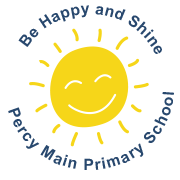History
History teaches children to understand how events in the past have influenced their lives and communities today; through History we can teach children to investigate these past events and, by so doing, develop the skills of enquiry, analysis and interpretation. The teaching of History can equip pupils to ask perceptive questions, think critically, weigh evidence, sift arguments, and develop perspective and judgement. A high-quality History education can inspire curiosity and fascination about the world
The aim of History teaching at Percy Main Primary is to stimulate the children’s interest and understanding of the life of people who lived in the past. We teach children a sense of chronology in order for them to develop a sense of identity based on their historical heritage. This in turn gives children a sense of identity and cultural understanding based on their historical heritage. At Percy Main Primary, our teaching and learning prepares and primes our children for their future. History forms an integral part of this curriculum; facilitating comprehension, enquiry and analysis. Our aim is to help pupils gain a coherent knowledge and understanding of past civilizations, developing skills and knowledge to compare civilizations. Further to this, to develop analytical and critical thinking about how the past, current and future link together, and develop an understanding of the chronology of key historical events and civilizations near and far.




